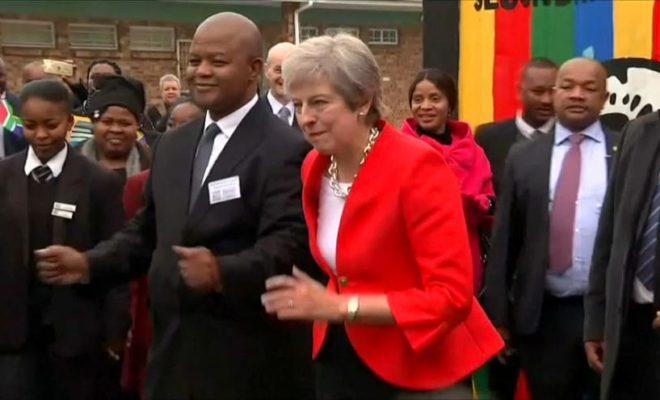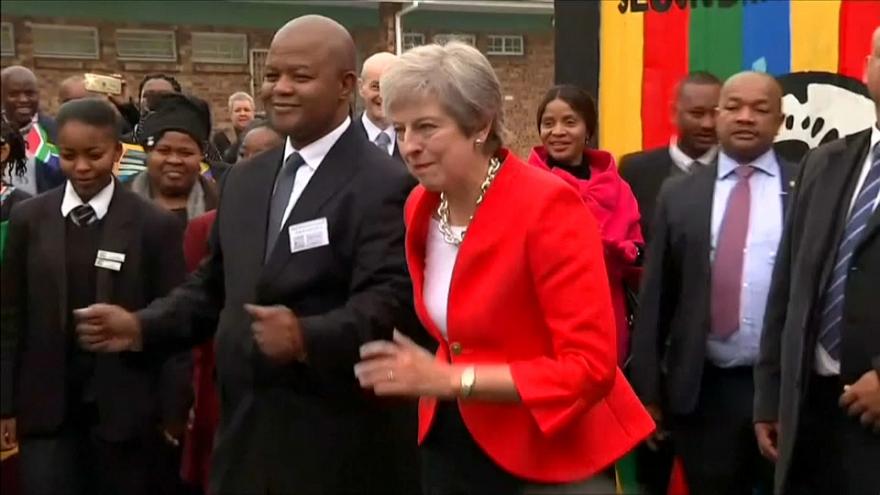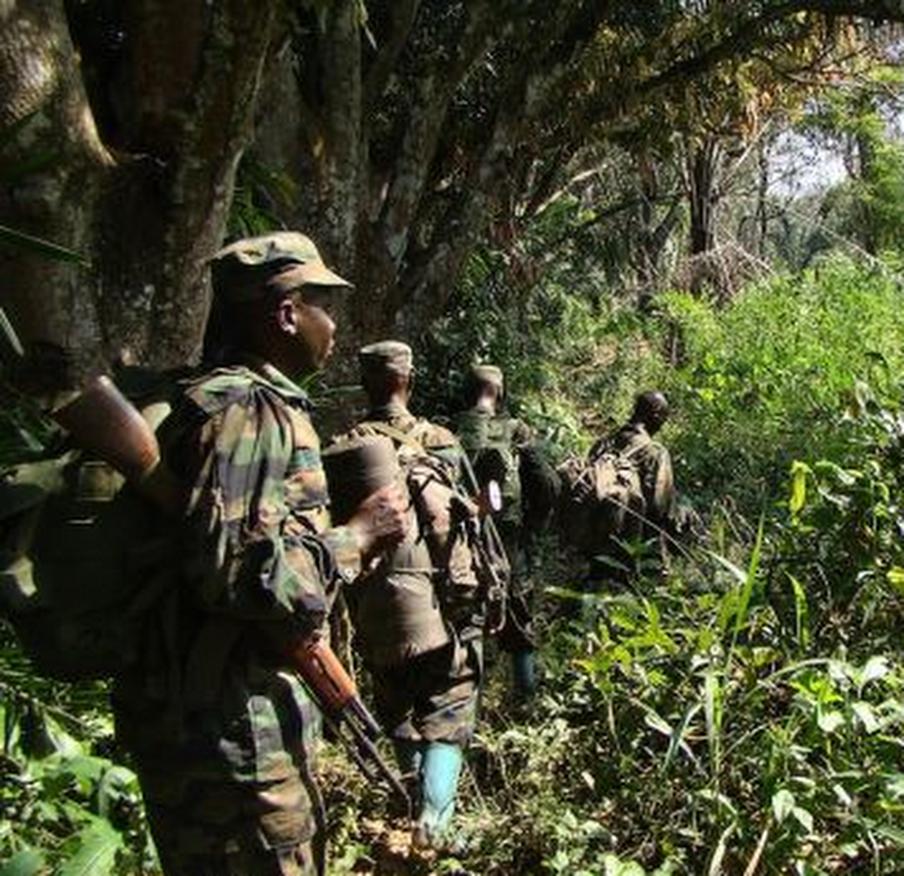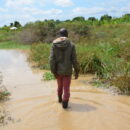May in Africa: Same old UK self-interest + new smell of desperation

Theresa May is the latest UK leader to visit “Africa” for their own political purposes, with aid now being linked to post-Brexit trade deals.

UK Prime Minister Theresa May dances in South Africa.
In 1948, British ministers discussed the development needs of African colonial territories. But the focus was not on the needs of those countries, but on how colonial development might best support the British economy. There was a political calculation to be considered. Following the rebalancing of global power after 1945, ministers felt that only by strengthening Europe’s African empires could an emergent Western European bloc compete with the US and Soviet blocs.
70 years on, “Africa” remains a shibboleth for British politicians. Only this time it’s seen as the solution to the problem of how the UK can maintain global power and influence following its departure from that Western European bloc under Brexit.
Theresa May’s much hyped and much reported visit to “Africa” (a trip encompassing South Africa, Kenya and Nigeria) has been sold as the means for deepening economic ties between the UK and the region. May announced aspirations for the UK to become the G7’s largest investor in Africa by 2022. There is to be an additional £4 billion ($5.2 billion) in direct government investment, to be matched by private sector investment (a relatively modest ambition). The prime minister pledged to defend the level of UK aid (against conservative and media critics who wish to see it cut), while positing a reorientation of that aid spending to support the post-Brexit British economy.
May is the latest in a long line of prime ministers who have evoked the potential of “Africa” for their own political purposes. This line stretches from Tony Blair and Gordon Brown, who saw international aid as a mechanism for highlighting British global moral leadership, to David Cameron’s 2011 visit when he called for aid to be used to create future consumers for British goods and services.
What makes May’s visit and proclamations different is the smell of desperation. There are many good reasons for deepening trade links across the region and for establishing better relationships with African governments. But presenting this as the solution to the UK’s likely post-Brexit economic woes seems misguided at best, deluded at worst.
May has been criticised for her promise to refocus aid in ways that are seen to reflect British domestic and diplomatic interests. She wants to downgrade short-term poverty alleviation in favour of job creation. She wants to increase security and support for fragile African states. But her motive for doing so seems largely to be reducing migration to Europe. Now she is using aid as a tool to support the creation of trade deals with non-EU blocs.
UK aid has always been about UK interests: political, economic and diplomatic. Indeed, the first act that established British aid, the 1929 Colonial Development Act, was passed as the world tipped into global economic crisis and depression. It was explicit in its aim to boost the British economy and jobs, and the same is true today.
Aid for trade?
Subsequent iterations of UK aid from the 1940s to the 1990s, under both Labour and Conservative governments, “tied” aid so that spending on equipment and experts was made in the UK. Aid has always been seen as a foreign policy tool as much as a moral obligation to help poorer world regions develop. The UK is not alone in this: “tied aid” requirements remain common despite their poor record in reducing poverty. Blair’s government made tied aid illegal in 2002, but it remained a core element in the UK’s diplomatic arsenal and a means to ensure global influence (for example, in defending Britain’s permanent membership of the UN Security Council).
In 2009, Hillary Clinton, then the incoming secretary of state under US president Barack Obama, reflected the use of aid as both a means for tackling poverty and insecurity in poor regions of the world as well as for protecting domestic interests when she announced development aid was to be a central pillar of US foreign policy. France is relatively overt in its linking of aid to promoting its own African interests.
May’s promised refocus is not really substantively new. Under the UK coalition government from 2010-15, aid was to be refocused on job creation, with a promise that this would be good for British business. Priti Patel, during her disastrous period at the helm of the Department for International Development, repeatedly asserted that the purpose of UK aid was to serve the UK’s national interest. She regularly linked aid spending to future trade relationships and deals.
May’s “new approach” is essentially the same policy wrapped in shiny new Brexit packaging. But as a mechanism for achieving a bright, post-Brexit future, it seems as convincing as her efforts at dancing.
This article was originally published on The Conversation. Read the original article.![]()







Yes the British are desperate as is the entire West. They have no intention of addressing the underlying fundamental issue of economic development. China through the FOCAC Africa summit, the BRICS, and the Belt and Road is providing assistance is building vitally needed infrastructure, which the West has refused to do over decades. Only Italy has shown a desire to help Africa develop with its support for the Transaqua water project to save the shrinking Lake Chad.